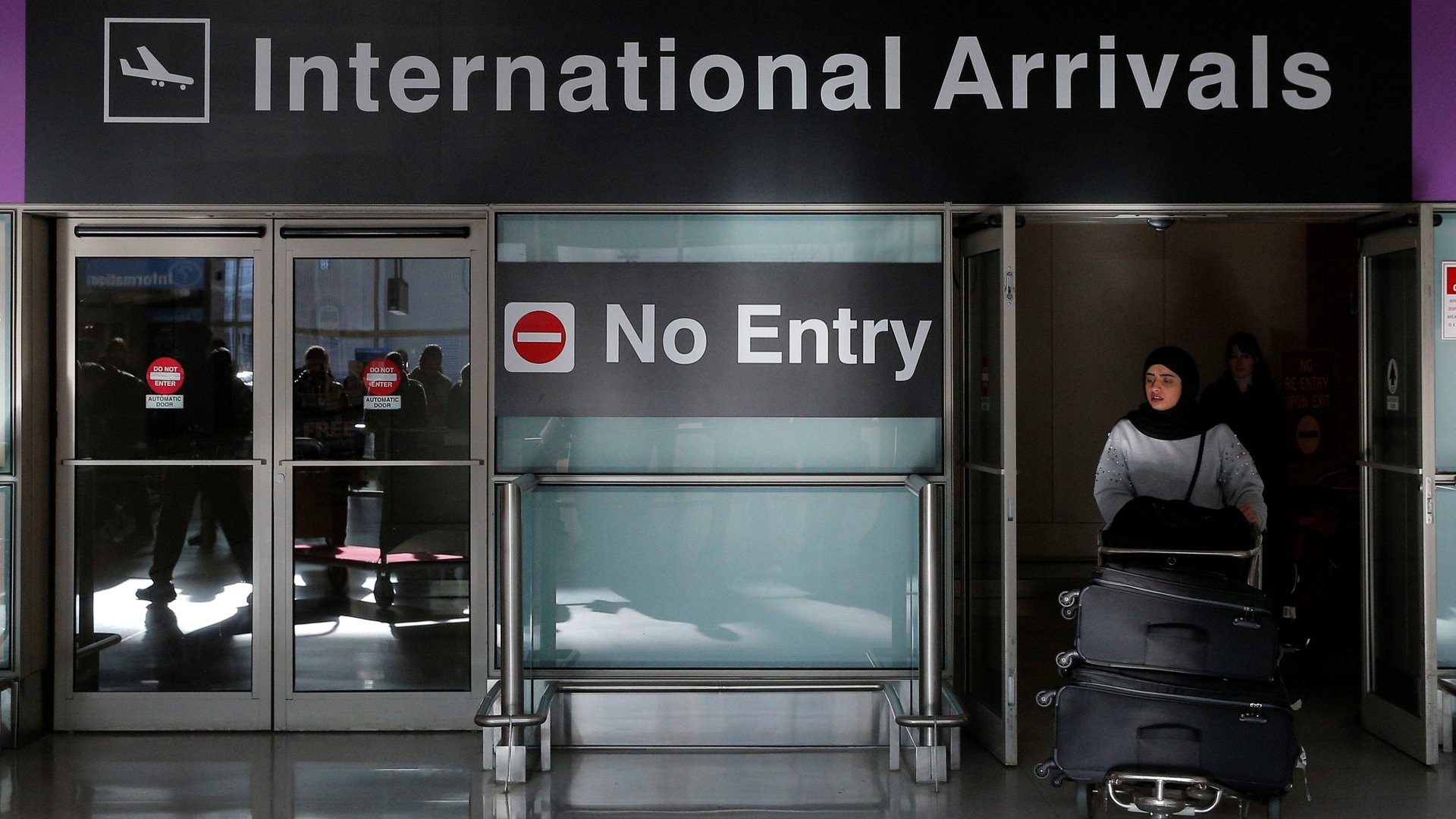Citizens of six Muslim countries can escape Trump’s travel ban if they meet one of these conditions
On Monday, the United States Supreme Court said it would allow the government to implement parts of its suspended travel ban against citizens from six Muslim-majority countries with one major caveat. The ban cannot apply to those with “a credible claim of a bona fide relationship with a person or entity in the United States.”


On Monday, the United States Supreme Court said it would allow the government to implement parts of its suspended travel ban against citizens from six Muslim-majority countries with one major caveat. The ban cannot apply to those with “a credible claim of a bona fide relationship with a person or entity in the United States.”
The state department has now attempted to define what counts as a “bona fide relationship.” Visa applicants from Syria, Sudan, Somalia, Libya, Iran, and Yemen will only be able to enter the United States if they can prove that a close family member is already living in the US, according to a state department cable seen by the Associated Press. That includes parents, spouses, children, adult sons or daughters, son-in-laws or daughter-in-laws or siblings, but not “extended family members” like grandparents, aunts or uncles, cousins, in-laws, or fiancés.
Business or professional ties that are “formal, documented, and formed in the ordinary course rather than for the purpose of evading” the executive order would also exempt an applicant from the ban. Journalists, students, lecturers, and employees with contracts or invitations from US entities are also exempt. Visas that have already been issued will not be revoked.
It’s still not clear how the partially implemented travel ban will affect refugees and asylum seekers without these links. According to the AP, the same requirements will apply to refugees from any nation who are still awaiting approval to enter the US. The new rule will take effect at 8pm ET June 29, according to the AP.
“I predict chaos at the border and new lawsuits as foreign nationals and refugees argue that they are entitled to enter the United States,” Stephen Yale-Loehr, a Cornell University Law School professor said earlier this week.